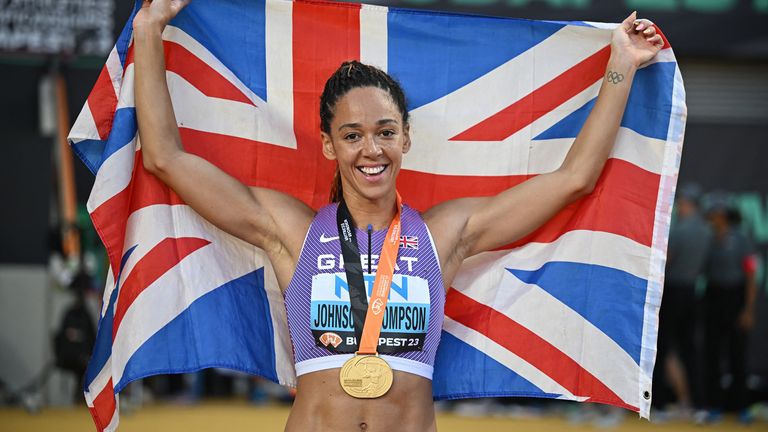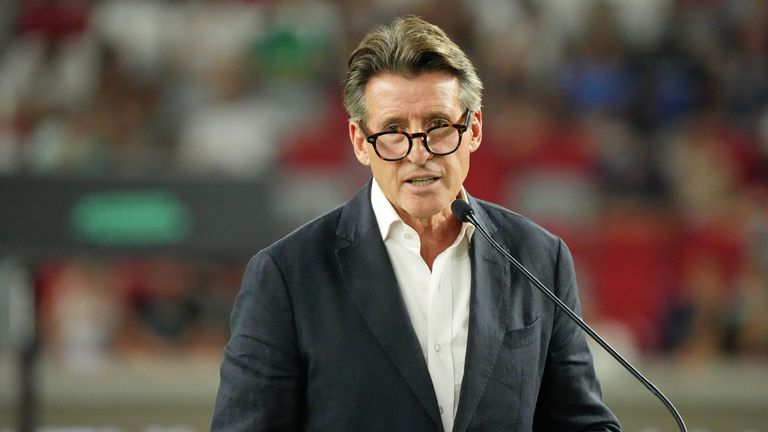
Athletics will become the first sport to introduce prize money at the Olympics this summer.
World Athletics, the international athletics federation, says it will pay Olympic gold medal winners $50,000 (around £39,400) at the Paris games.
The athletics governing body said it is setting aside $2.4m (£1.89m) to pay the gold medallists across 48 events at Paris’ track and field programme.
Relay teams will split the $50,000 between their members.
Payments for silver and bronze medallists are planned to begin at the 2028 Olympics in Los Angeles.
World Athletics President Sebastian Coe said: “The introduction of prize money for Olympic gold medallists is a pivotal moment for World Athletics and the sport of athletics as a whole, underscoring our commitment to empowering the athletes and recognising the critical role they play in the success of any Olympic Games.
“This is the continuation of a journey we started back in 2015, which sees all the money World Athletics receives from the International Olympic Committee for the Olympic Games go directly back into our sport.”
He added: “While it is impossible to put a marketable value on winning an Olympic medal, or on the commitment and focus it takes to even represent your country at an Olympic Games, I think it is important we start somewhere and make sure some of the revenues generated by our athletes at the Olympic Games are directly returned to those who make the Games the global spectacle that it is.”
Speaking to Sky News, Mr Coe added that he wanted athletes “to recognise that I see a very clear correlation between me announcing the new partners, the Sony’s, the Deloitte’s, the Morinaga’s that come to the table and the fact that they are able to benefit from the proceeds of the growth of the sport”.
He also said he does not think prize money “remotely” ruins the ethos of the Olympics, saying “rather than have the athletes as the first thought and the last consideration, and singing a good song about how important they are, that needs to be reflected”.
“This prize money I see as a raft of funds that we are making available within the sport that may actually allow those athletes to remain in the sport for another four years,” he added.
“And look, not everybody is going to win an Olympic title at 100 metres or 1,500 metres, but we’ve got 48 disciplines, and this will help the athletes.”
Read more:
Russian can compete as neutrals in the Olympics
Olympic champion wins human rights court appeal
Ukraine’s Zelenskyy responds to Trump’s ‘peace plan’
The payment of prize money will depend upon the World Athletics ratification process, including athletes undergoing and clearing the usual anti-doping procedures.
The modern Olympics originated as an amateur sports event and the International Olympic Committee does not award prize money, though many medallists receive payments from their countries’ governments, national sports bodies or from sponsors.
As well as the various men’s and women’s running races – both with and without hurdles – gold medallists in events including long jump, high jump, triple jump, hammer throw, javelin throw, discus throw, pole vault and shot put will receive the prize money.
Race walking, the women’s heptathlon and men’s decathlon Olympic winners will also receive $50,000.
The International Olympic Committee (IOC) told Sky News: “The IOC redistributes 90% of all its income, in particular to the National Olympic Committees (NOCs) and International Federations (IFs).
“This means that, every day, the equivalent of $4.2m goes to help athletes and sports organisations at all levels around the world. It is up to each IF and NOC to determine how to best serve their athletes and the global development of their sport.”


